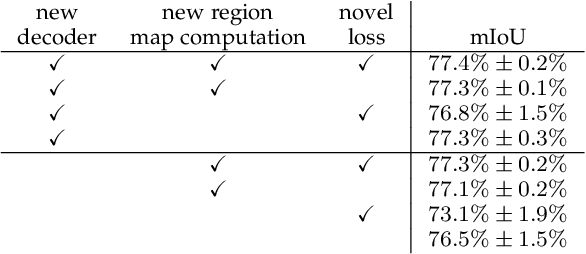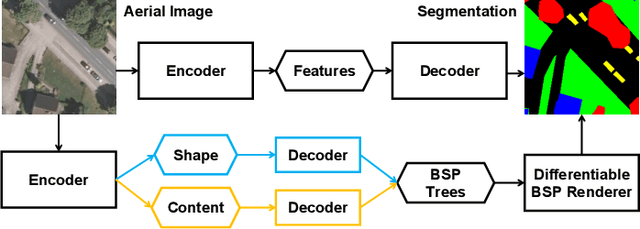SegForestNet: Spatial-Partitioning-Based Aerial Image Segmentation
Paper and Code
Feb 03, 2023



Aerial image analysis, specifically the semantic segmentation thereof, is the basis for applications such as automatically creating and updating maps, tracking city growth, or tracking deforestation. In true orthophotos, which are often used in these applications, many objects and regions can be approximated well by polygons. However, this fact is rarely exploited by state-of-the-art semantic segmentation models. Instead, most models allow unnecessary degrees of freedom in their predictions by allowing arbitrary region shapes. We therefore present a refinement of our deep learning model which predicts binary space partitioning trees, an efficient polygon representation. The refinements include a new feature decoder architecture and a new differentiable BSP tree renderer which both avoid vanishing gradients. Additionally, we designed a novel loss function specifically designed to improve the spatial partitioning defined by the predicted trees. Furthermore, our expanded model can predict multiple trees at once and thus can predict class-specific segmentations. Taking all modifications together, our model achieves state-of-the-art performance while using up to 60% fewer model parameters when using a small backbone model or up to 20% fewer model parameters when using a large backbone model.
 Add to Chrome
Add to Chrome Add to Firefox
Add to Firefox Add to Edge
Add to Edge